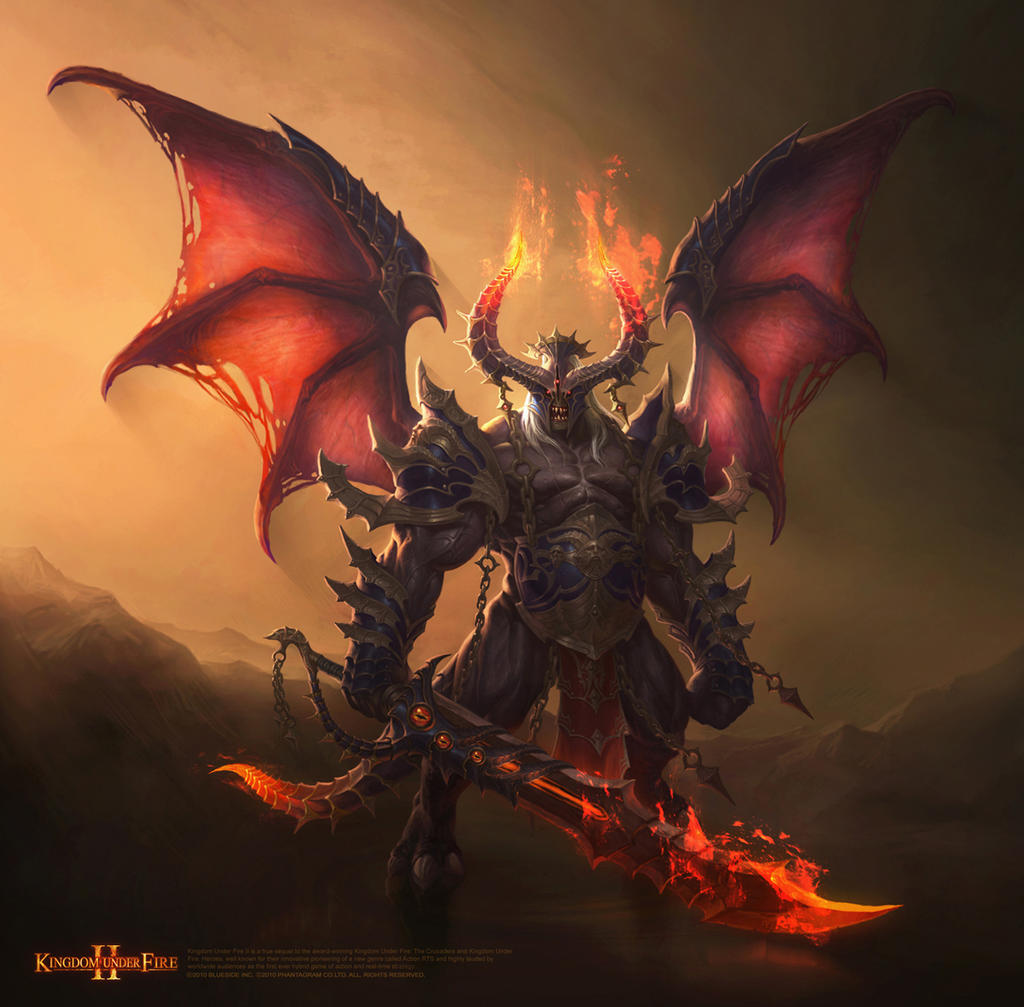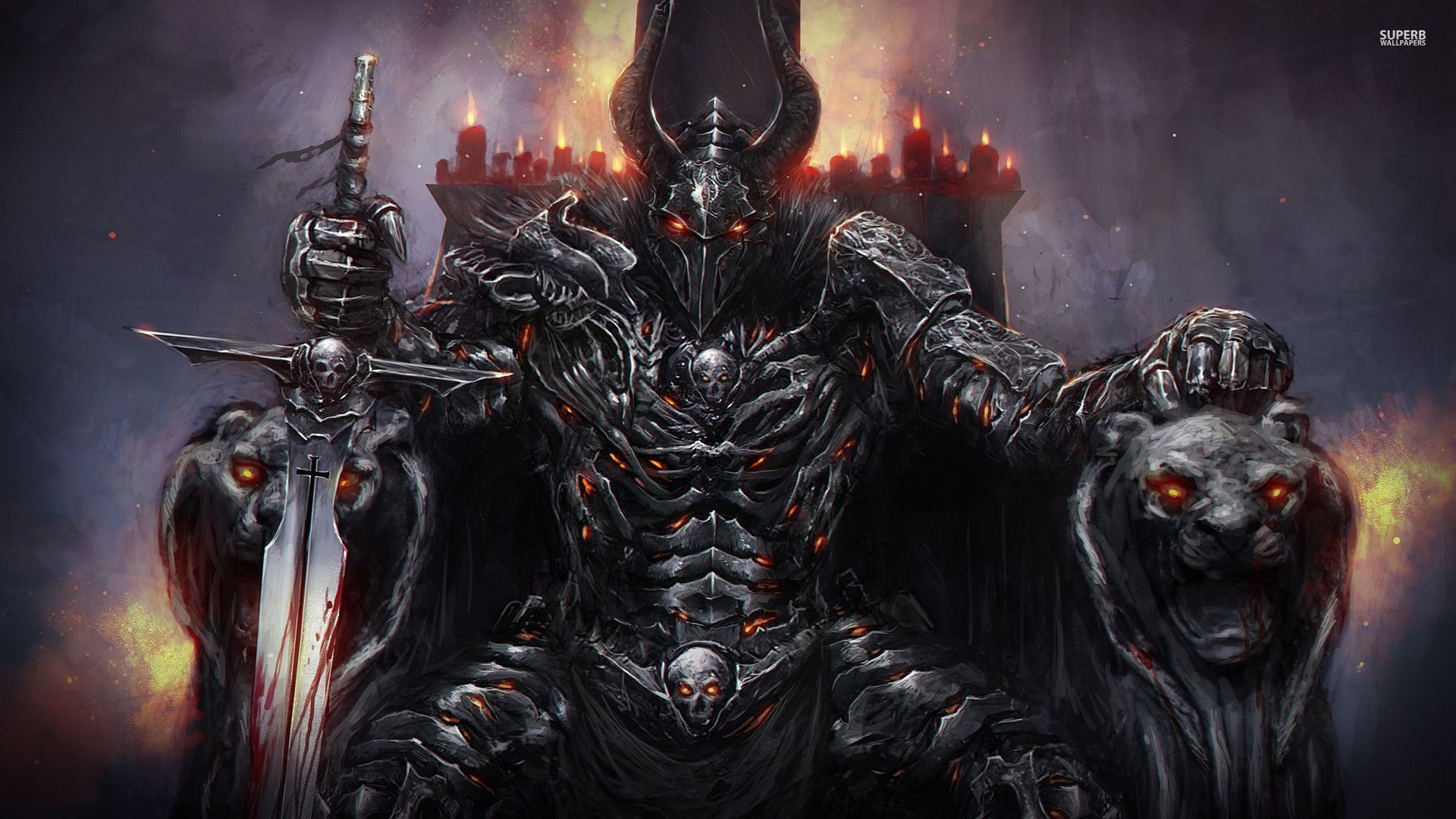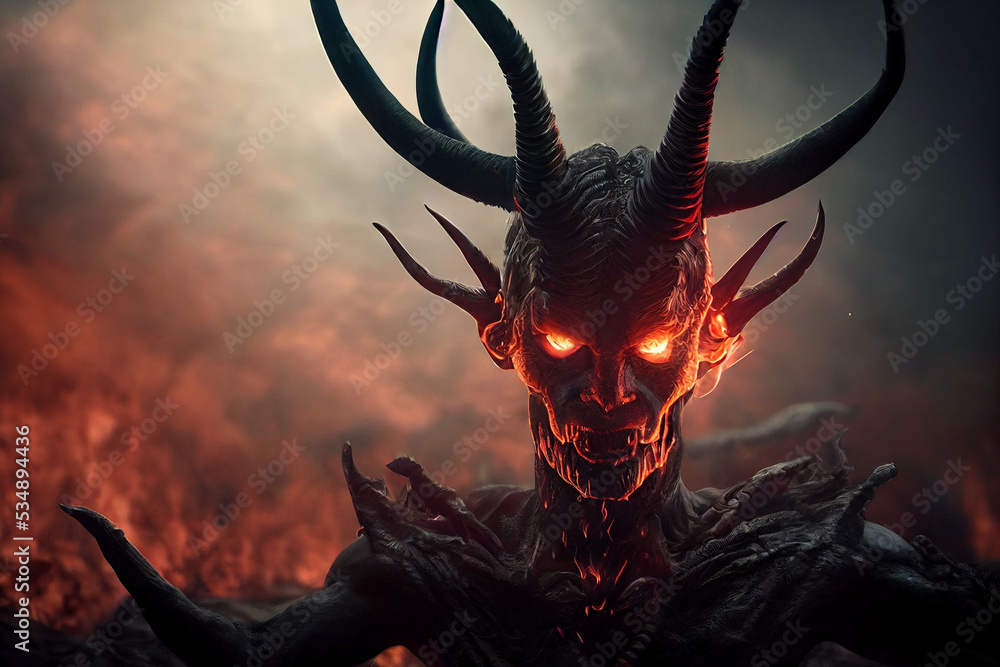Unpacking The Demon Of Babylon Meme: Where Ancient Tales Meet Modern Humor
Have you ever scrolled through your feed and stumbled upon an image that just sticks with you, perhaps a bit unsettling, yet strangely funny? Well, that's often the case with the demon of babylon meme, a piece of internet culture that has, you know, really captured people's attention. It blends deep historical references with a dash of modern-day silliness, and that, arguably, makes it quite fascinating.
This particular meme, as a matter of fact, pulls from really old stories and symbols, giving them a whole new life online. It's a prime example of how history, even the really ancient stuff, can pop up in unexpected places, especially in our digital hangouts. We'll look at what makes this meme tick, and where its roots might actually be.
So, if you're curious about the true meaning behind this striking image, or perhaps just wonder how something so old becomes, you know, a viral sensation today, then you're in the right spot. We're going to break down the demon of babylon meme, exploring its history, its meaning, and why it seems to resonate with so many people this very moment, on June 10, 2024.
- Timeless Tours
- Adjectives For Curiosity
- Rochester Civic Center
- Films Justin Timberlake Has Been In
- Wonder Woman Andteve Trevor
Table of Contents
- What is the Demon of Babylon Meme?
- The Ancient Roots: Babylon and its Demons
- Demon vs. Devil: Clearing Up the Confusion
- Why This Meme? Decoding Its Appeal
- Creating and Sharing: Tips for the Meme Enthusiast
- Looking Ahead: The Meme's Future
What is the Demon of Babylon Meme?
The demon of babylon meme, quite simply, is a picture or idea that gets passed around online, usually with some text that changes to fit different jokes. It often shows a figure that looks, you know, a bit menacing or otherworldly, and people connect it to the ancient city of Babylon. This connection gives it a sense of old power or mystery, which is part of its charm.
The images used can vary, but they generally bring to mind something ancient, perhaps a bit scary, but also kind of grand. Think of old carvings or drawings of powerful beings. People then add funny captions or relatable situations to these images, making them something entirely new.
It's interesting how a meme like this takes something that might be serious or historical and turns it into something lighthearted. This mixture of old and new, serious and silly, is actually what makes many memes work so well. It’s a bit like taking a very old story and giving it a modern twist, which, you know, makes it accessible to a lot of people.
- Naked Trumptatue Az
- La County Fair Map
- Temperature For Medium Rareteak
- Actress Emily Hampshire
- So Cal Edison Blackouts
The Ancient Roots: Babylon and its Demons
To really get the demon of babylon meme, we should probably look back at Babylon itself. Babylon was, after all, a very powerful city in ancient Mesopotamia, known for its grand buildings and, you know, its rich history. Its stories and beliefs have, in a way, stuck around for a very long time.
In ancient Babylonian culture, people believed in many different spirits and beings, some good, some not so good. These beings were, you know, a big part of their daily lives and their stories. So, the idea of a "demon of Babylon" has, perhaps, a very old echo, even if the meme itself is new.
The mention of Babylon in the meme often brings up ideas of ancient evil or immense power, which, you know, comes from how the city is sometimes talked about in old texts. This historical weight gives the meme a certain depth, even when it's used for something silly. It's almost like a nod to history, even if it's a playful one.
Understanding Ancient Mesopotamian Entities
Ancient Mesopotamians, which included the Babylonians, had a complex system of beliefs about spiritual beings. They had gods, goddesses, and also, you know, various types of spirits that could be helpful or harmful. These spirits were, in a way, everywhere in their world.
Some of these entities were seen as protectors, while others were thought to bring illness or bad luck. They would, you know, use rituals and prayers to deal with these beings. So, the concept of a "demon" wasn't always just about pure evil; sometimes it was about a force that needed to be managed or appeased.
This background helps us see how the idea of a "demon" from a place like Babylon has, perhaps, a very long and varied history. It's not just a simple idea of a bad guy; it's a bit more layered than that. This complexity, you know, makes the meme's historical reference a bit richer.
Demon vs. Devil: Clearing Up the Confusion
It's interesting, you know, how often people mix up the words "demon" and "devil." Someone I know was actually, you know, made fun of for using them as if they meant the exact same thing. But, there's a difference, kind of like the difference between a "god" and an "angel." My own thoughts on this, based on what I've learned, suggest there's a clear distinction.
A "devil," you see, is usually thought of as the most wicked being, almost like a "god" on the side of badness. It's a top-tier evil presence, really. A "demon," however, is more often seen as a being that does the devil's work. They are, you know, often described as evil spirits or supernatural beings with powers that go beyond what regular humans have.
But, it's not always so clear-cut, as sometimes these terms can, you know, be used for each other in different stories or traditions. This overlap can make things a bit confusing for people. It's just a little bit of a linguistic puzzle, really.
The Devil: A Top-Tier Evil, So to Speak
When we talk about "the Devil," we're generally talking about the ultimate bad guy in many stories, especially in some religious traditions. This being is, you know, often seen as the source of all evil, a very powerful force indeed. It's the big boss of wickedness, in a way.
This figure is usually seen as unique, standing alone at the top of the evil hierarchy. It's not just an evil spirit; it's the embodiment of evil itself. So, when people say "Devil," they're usually referring to this singular, most wicked presence, which, you know, is a pretty significant distinction.
It's the kind of being that, perhaps, inspires a lot of fear and awe, given its supposed power and influence. This idea of a supreme evil being is, in fact, a very old one, present in many cultures and stories.
Demons: The Supporting Cast, and More
Now, "demons" are a bit different. They are, as I mentioned, often seen as beings that serve the Devil, or perhaps just as evil supernatural creatures on their own. The word "demon" doesn't always have a strong religious meaning, you know. It can just mean any kind of evil, non-natural thing, an evil spirit with powers beyond what people have.
The term can cover a very wide range of things. For example, in Greek, "Daimon" actually had a different meaning, sometimes referring to a guiding spirit, which is, you know, almost the opposite of how we use "demon" today. Socrates' student Xenophon even wrote about this, showing how meanings can change over time.
And then there's "Maxwell's demon," which is a thought experiment in science, not a real evil being at all. It's a tiny, imagined creature that can sort atoms, which, you know, is pretty far from anything religious. Also, sometimes "demon" can describe someone who is really, really into something, like "he studied English every day for 10 hours like a demon." So, the word has, you know, a lot of uses, some quite surprising.
Biblical Perspectives, too
The Bible, you know, also talks about how some angels became demons. It points out the first angel who, in a way, turned himself into a demon, and how other angels followed suit back in Noah's time. This shows a sort of origin story for these beings in that context.
For example, Genesis 6:2 mentions "the sons of the true God," and Jude 6 calls them "angels." These invisible, bad spirit creatures have powers beyond human abilities. This biblical view, you know, adds another layer to what "demon" can mean for many people.
So, while the idea of a "demon" might be tied to serving a greater evil, it also has these stories of its own beginnings. It's not just a simple concept; it's a bit more complicated, really, with roots in very old texts.
Why This Meme? Decoding Its Appeal
So, why does the demon of babylon meme actually stick with people? Well, part of it is the mix of something ancient and grand with something totally relatable and funny. It's almost like a historical inside joke, you know, that everyone can get in on.
The meme taps into a kind of shared cultural knowledge, even if that knowledge is just a vague idea of "ancient evil" or "powerful beings." This connection to something bigger, something from a very old past, gives it a certain weight. It's, you know, more than just a silly picture.
Also, the visuals often have a striking quality. They're usually quite bold or dramatic, which helps them stand out in a busy online feed. This visual impact, combined with the unexpected humor, makes it very shareable. People tend to share things that surprise or amuse them, and this meme, you know, does both pretty well.
It also lets people express feelings or situations that feel, you know, a bit overwhelming or "demonic" in a lighthearted way. Like when a task feels impossibly hard, or a situation is just absurd, the "demon of Babylon" can stand in for that feeling. It's a way to cope with life's little (or big) absurdities, really.
Creating and Sharing: Tips for the Meme Enthusiast
If you're thinking about making your own version of the demon of babylon meme, or just sharing it, there are a few things to keep in mind. First, think about the situation you want to apply it to. What's something that feels, you know, a bit overwhelming or strangely powerful in your daily life?
The humor often comes from the contrast between the grand, ancient image and a very ordinary, modern problem. So, picking a good, relatable scenario is key. You want people to see it and think, "Yeah, that's exactly how it feels!"
When sharing, consider where your friends hang out online. Different platforms, you know, have different vibes. A meme that works well on one might not land as well on another. It's about knowing your audience, really. You can also learn more about internet culture and trends on our site.
And remember, the best memes are often simple and to the point. Don't overthink the caption. Sometimes, just a few words can make all the difference. This simplicity helps the meme spread easily, you know, from one person to another. It's a bit like a secret handshake for those in the know.
Looking Ahead: The Meme's Future
Will the demon of babylon meme stick around forever? Probably not in its current form, but its spirit, you know, might live on. Memes tend to have their moment in the sun, then fade a bit, only to be rediscovered or reborn in a new way. It's just how internet culture works, really.
The fact that it pulls from such old, deep sources gives it a certain timeless quality, though. This connection to ancient history means it has a bit more staying power than some other, more fleeting trends. It's a conversation starter, you know, about history and humor all at once.
As long as people find new ways to connect ancient ideas with modern life, memes like this will probably keep popping up. They are, in a way, a testament to how human creativity finds expression in every age, even through something as simple as an online image. You can also find more content like this here.
Frequently Asked Questions
What is the main difference between a "demon" and a "devil" in traditional Western thought?
Generally, a "devil" is seen as the ultimate evil being, a top-tier figure, almost like a "god" of badness. A "demon," however, is usually thought of as a servant of the devil or just a powerful evil spirit that lacks the same ultimate status. It's a bit like the difference between a main boss and a mini-boss, you know.
Where does the "Babylon" part of the meme come from?
The "Babylon" part comes from the ancient city of Babylon, which was a very powerful place in Mesopotamia. It's often talked about in old texts, sometimes as a symbol of great power or even wickedness. This historical background gives the meme a sense of old, grand mystery, you know, even if it's used for something funny today. You can learn more about ancient Mesopotamian beliefs by visiting an online museum collection.
Can the word "demon" have a positive or neutral meaning?
Yes, actually! While "demon" often means something evil today, its meaning hasn't always been negative. For example, in ancient Greek, "Daimon" could refer to a guiding spirit, which is a neutral or even good concept. Also, we sometimes use "demon" to describe someone who is very focused or intense about something, like "he worked like a demon." So, the word has, you know, a few different uses.
The content above explores the demon of babylon meme, its historical ties, and the distinctions between "demon" and "devil." It looks at why such a meme might become popular and offers thoughts on its place in internet culture. The piece also includes answers to common questions about the topic.

Demon by Gpzang on DeviantArt

Demon wallpaper | 1920x1080 | #2410

Scary demon monster in hell. Created with Generative AI. Stock